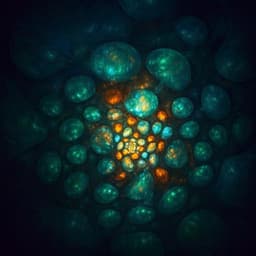
Medicine and Health
Gut microbiome dysbiosis across early Parkinson's disease, REM sleep behavior disorder and their first-degree relatives
B. Huang, S. W. H. Chau, et al.
Research conducted by Bei Huang and colleagues explores the intriguing relationship between gut microbiota and Parkinson's disease (PD). Their cross-sectional study highlights significant alterations in gut microbiota in individuals with early PD and REM sleep behavior disorder (RBD), revealing potential diagnostic and etiological insights into these conditions.
Playback language: English
Related Publications
Explore these studies to deepen your understanding of the subject.







